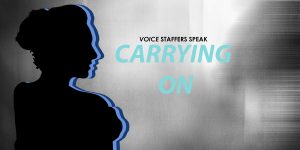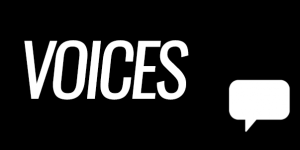Wednesday evening in Leavey 424 is always a party.
But it’s not the typical kind of party. For instance, we do shots, but of espresso. There’s loud music, but we usually play hipster, alternative jams, not clubbing themes. We lie on the floor and on the tables, but it’s out of exhaustion and mental implosion rather than inebriation since we’re often at the office until 3:00 or 4:00 a.m.
We do it willingly because we enjoy journalism. Some of the more exciting news stories we’ve investigated in the last year include Aramark workers’ rights, oppression of residential assistants, and Daniel Milzman’s criminal production of ricin. It’s especially fun to scoop our friendly competitor The Hoya on a juicy story.
But when it comes time for our budget meetings with Media Board, Georgetown’s funding arm for student publications, we are reminded of the irony that we are heavily funded by the university. In some recent years, ironically, we have even been funded by The Hoya’s revenues.
The journalism industry in general is contracting. The traditional print newspaper is vanishing as it loses its share to online media. Student journalists too face the crunch, owing to falling ad revenues and an enduring focus on printing hard copy instead of going digital.
The Voice and The Hoya have never been financially independent from the university. We are funded by Media Board, which is paid for by the student activities fee. The Hoya recently attempted to break free from university funding, but was blocked from gaining independence in 2010.
This means our papers’ decision-making is beholden to approval by Media Board. The Voice faces this less because we don’t have much money in the first place. In its bid to go independent, however, The Hoya was vocal about not being able to reinvest its profits back into the paper in order to add new initiatives and projects.
In terms of editorial content, we student media often toe the line of when the university will assert its authority. Technically, as Georgetown is a private institution that voluntarily funds us, we could be subject to prior review by administrators—but the university keeps us on a very long leash. I was never directly pressured to change or pull an article. In recent memory, the closest we have gotten to ticking off administrators was a Page 13 comic that drew Erika Cohen-Derr and Jeanne Lord as harpies, and Dr. Lord, the good-humored human being she is, requested a framed copy of it.
That Georgetown has given us free reign in content is not surprising to me. The university is a place to debate and discuss, and this is emphasized in Georgetown’s mission and Jesuit values. For instance, although we are not allowed to run contraceptives-related ads, we have run pro-choice editorials and opinion pieces without university restrictions.
Nevertheless, we feel the impacts of being the often irreverent child of the university in other ways. In 2011, the Voice lost its office as punishment for the mistakes of staff members who trespassed on university property. Even though they were not acting in their capacity as staffers, we have since been in a much smaller office down the hall (our favorite inside jokes include “Stuck in the Closet since 1969.”) We always overflow into the hallways and recently gained a little breathing room in a small unused “satellite” office (named for the hot issue of the time, the “satellite campus” proposal) down the hall. But if we continue to depend on the university, it is likely we will never get a larger space.
Both we and The Hoya also face the conundrum of making our living from reporting on the university. It’s a catch-22 that the people we want to expose and hold accountable are the ones who we depend on for information. For example, the writers who have the toughest struggle of this may actually be our sports writers, who regularly are frustrated by the precarious balance between staying on the good side of Sports Information (the Athletic Department’s PR wing) to ensure access to university coaches and athletes for interviews and investigating important stories.
This is an obstacle that exists regardless of whether we are financially independent or not, but our financial dependence severely complicates our frustrations from trying to create quality works of journalism.
Many student newspapers, such as those of Harvard, Northwestern, Yale and the University of North Carolina Chapel Hill, have succeeded in remaining independent even in tough economic straits. George Washington University’s The Hatchet, which has been independent since 1993, previously paid about $4,300 a month in rent to GWU before successfully fundraising from alumni for the purchase of a townhouse in 2013.
The Voice doesn’t have that kind of alumni fundraising base, and is limited by an under-developed business section. Gaining financial independence means successfully running a business, which is a tough, time-consuming task for full-time students to take on.
But if our ethos is to be “committed to providing campus with critical journalism that doesn’t give defer to those in power,” we need to aspire to the excellence, financially and editorially, of the examples set by fellow student journalists at other universities.



If I ever hit the lottery, the first thing I’m doing is paying for this paper to go independent.